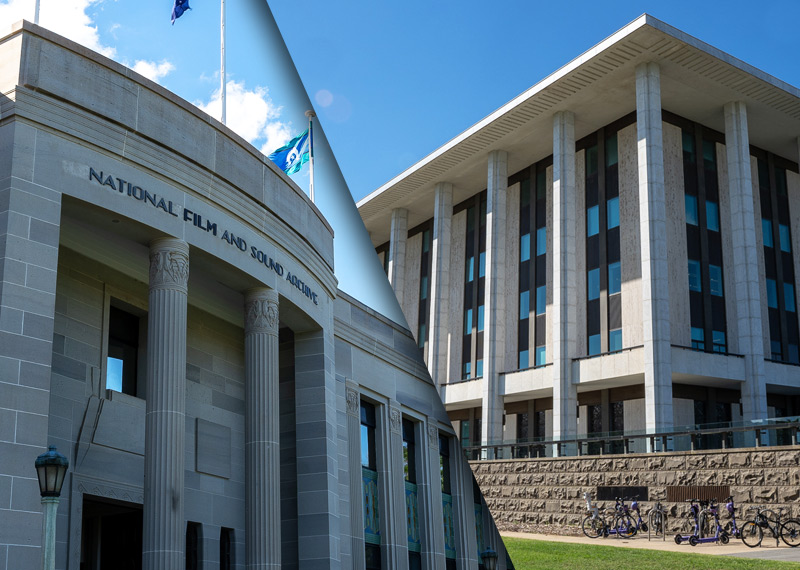Browse our range of reports and publications including performance and financial statement audit reports, assurance review reports, information reports and annual reports.
Mr P.J. Barrett (AM) - Auditor-General for Australia, presented a speech on the occasion of the release by the Minister for Finance of the Second Trial Unaudited Financial Statements for the Commonwealth of Australia for the year ended 30 June 1996.
This audit would assess the effectiveness of the Fraud Fusion Taskforce, to determine how government agencies work together to detect, resolve and prevent fraud and serious organised crime in the National Disability Insurance Scheme (NDIS) and other government programs.
The Fraud Fusion Taskforce is a multi-agency partnership working to disrupt fraud and criminal activity, including serious and organised crime. The Fraud Fusion Taskforce commenced in November 2022, co-led by the National Disability Insurance Agency (NDIA) and Services Australia, with 21 other government agencies including the NDIS Quality and Safeguards Commission, the Australian Federal Police and the Australian Criminal Intelligence Commission. In the October 2022–23 Federal Budget $126.3 million was allocated over four years to establish the taskforce. In the 2024–25 Budget additional funding of $23.5 million over two years was provided to Services Australia.
Please direct enquiries through our contact page.
The Australian Political Parties for Democracy Programme is administered by Finance. The programme aims to strengthen democracy internationally by providing support for the international activities of Australia's major political parties. Funding of up to $1 million is provided annually under the programme to each of the Australian Labor Party and to the Liberal Party of Australia. Guidelines for the programme provide for the parties to re-apply for funding each year and set out the criteria against which applications for funding are assessed. The proposed audit would examine the administration of the program by Finance, including the adequacy of assessment of acquittal documentation and requests to roll over funding.
The follow-up audit assessed the extent to which the Australian Taxation Office (ATO), Department of Health and Ageing (Health), and Medicare Australia had implemented the six recommendations from Audit Report No.47 2001–02, Administration of the 30 Per Cent Private Health Insurance Rebate. The audit also looked at: the implementation of some of the major suggestions for improvement in the original audit; and the current validity of some of the positive major findings from that audit. The audit found that the ATO, Health and Medicare Australia have acted upon the recommendations contained in Audit Report No.47 2001–02 and, overall, the administration of the Rebate is currently being undertaken effectively.
This audit would review the progress of selected components of the Australian Government’s Digital Identity program including the effectiveness of the implementation, design and functionality of the Digital Identity System, roles and responsibilities of stakeholders and the allocation and expenditure of funding, including contract management.
The Digital Identity program is delivered by the Department of Finance (policy and program lead), with Services Australia and the Australian Taxation Office (ATO) delivering critical operational functions. Components of the program include the Digital ID Act 2024, the Identity Exchanges (delivered by Services Australia), myID (the Commonwealth’s Identity Provider, delivered by ATO) and connected services to the system.
The Digital ID Act 2024 and the Digital ID (Transitional and Consequential Provisions) Act 2024 commenced on 1 December 2024 and support the expansion of the Australian Government Digital ID System and introduce a voluntary accreditation scheme for digital ID services providers. The Digital ID Regulator is the Australian Competition and Consumer Commission; and the Office of the Information Commissioner as the privacy regulator and Digital ID Data Standards Chair.
Please direct enquiries through our contact page.
The objective of this audit was to assess whether the National Library of Australia and National Film and Sound Archive (NFSA) have implemented effective collection management practices.
Please direct enquiries through our contact page.
This audit would examine the Department of Social Services’ (the department’s) management of its Data Exchange (DEX) performance reporting portal.
DEX is a web portal that allows providers receiving government funding to report on program outputs (such as the number of clients assisted) and outcomes (such as improvements in clients’ health and wellbeing). It is underpinned by three principles: providers should spend less time collecting and reporting administrative data and more time helping clients; data collection should focus on client outcomes; and client personal information and privacy is protected. The department uses DEX as the data source for three corporate plan performance measures under its Families and Communities and Disability and Carers programs. DEX has also been extended to other Commonwealth and state government programs, including grant programs delivered through DSS’s Community Grants Hub. While the department is responsible for managing DEX, Services Australia has operated the portal since 2021 as part of its delivery of shared ICT services for the department.
Please direct enquiries through our contact page.
Grant Hehir, Auditor-General for Australia, attended the Institute of Internal Auditors-Australia ‘Public Sector Internal Audit Conference’ on 31 July 2018, and presented an opening keynote session titled Strategic governance of risk: Lessons learnt from public sector audit. The accompanying paper to the speech, which was delivered against a conference theme of ‘internal auditor as a trusted advisor’, is available here.
Please direct enquiries through our contact page.
The objective of this audit was to assess whether the National Gallery of Australia (NGA) and the Australian War Memorial (the Memorial) have implemented effective collections management practices.
Please direct enquiries through our contact page.
The Civil Aviation Safety Authority (CASA) is responsible for regulating aviation safety in Australia, the safety of Australian aircraft operating overseas as well as for regulating and administering Australia's airspace. In September 2008, the Senate Committee on Rural and Regional Affairs and Transport presented a report on the Administration of the Civil Aviation Safety Authority and related matters. That report made three recommendations, one of which requested an Australian National Audit Office (ANAO) audit of CASA's implementation and administration of the regulation of aircraft operators' Safety Management Systems (SMS'). ANAO agreed to this request with the objective of the audit being to assess CASA's implementation and administration of an SMS approach to regulating aircraft operators.
An SMS is a systematic approach to managing safety, which encompasses organisational structures, accountabilities, policies and procedures. Amendments to the Convention on International Civil Aviation (commonly referred to as the Chicago Convention) made in 2006 require that contracting states regulate the SMS' of aircraft operators. As a contracting state to the Chicago Convention, Australia is required to mandate that aircraft operators implement an SMS.

